Leading with the good news (in direct violation of the media adage “if it bleeds it leads”), the barred owl with what should have been life-ending wing injuries was successfully released. To be perfectly honest, I figured I’d end up chasing him along the ground to recapture him but wanted to give him the chance at release. To my delighted surprise, he flew fast, straight and smooth!
The attitudinal little snot somehow managed within the confines of his transport box to STILL find room to bow up in threat at me.
My initial assessment was that the eyes might be ruptured and that the fluids crusting them shut were the aqueous or vitreous humour from inside the eyeball itself. I could barely pry the eyelids apart to check. In addition to the damage to the eyes and beak, the bird was rail-thin and his bedraggled tail feathers indicated he’d been down for some time before the couple found him.
During all this, the owl was quiet and unresisting. That just ain’t normal for a barred owl. After discussing his chances of survival, Richie and I agreed they weren’t good and opted for euthanasia. Because he likely had a mate on eggs or maybe even young nestlings, this was a heartbreaking call, but given the fact that he’d already been down for quite a while, we figured if the female had already had to leave the eggs unattended long enough to hunt to feed herself, they’d already gotten too chilled to be viable; if she had nestlings, they also had probably gotten chilled and died. So this poor guy’s initial injuries probably condemned a nest of eggs/hatchlings to death, as well, even before we made the call to end his suffering—and he went down quickly and quietly, which barred owls NEVER do. That was a stark indication of just how horrific his condition was…
The goal of any rehabber is to return wildlife to the wild, as quickly as possible and safe for the wildlife. During nesting season for raptors this becomes an even more vital consideration—and when injuries preclude a return to the wild, the rehabber feels the weight of losing multiple lives, because we know the death of that one bird probably resulted in the deaths of all his/her offspring for the year. And yeah, that sucks, big-time. Welcome to our world…
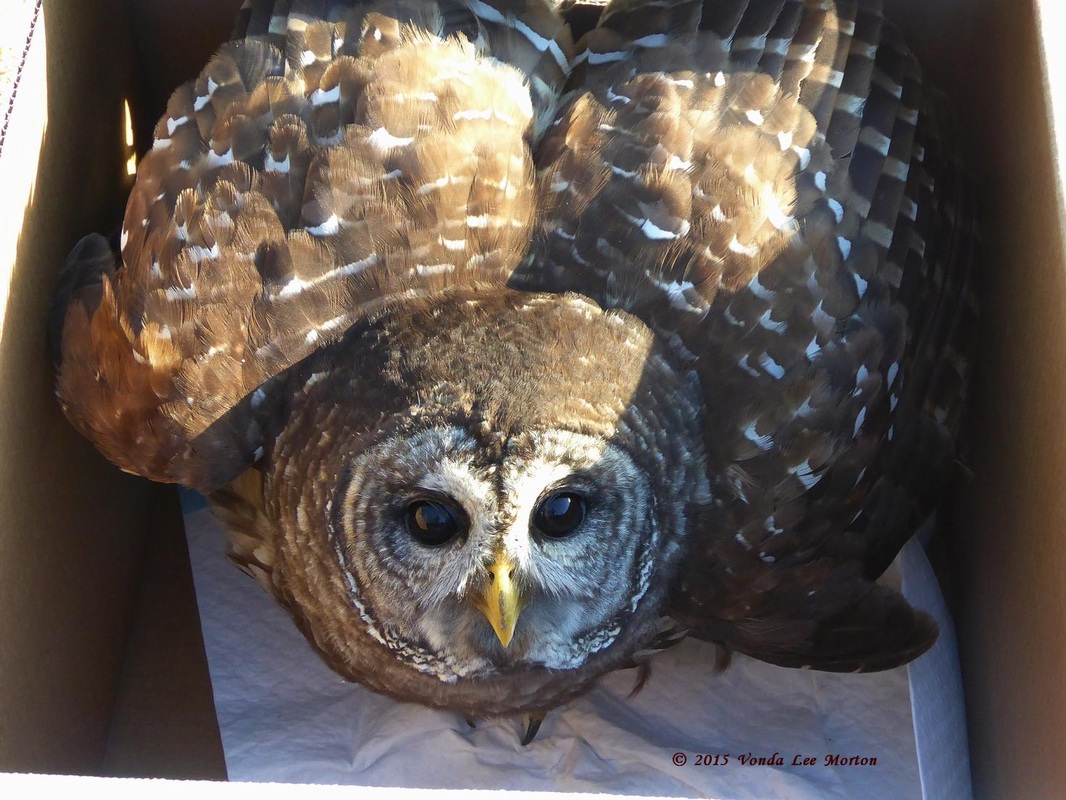
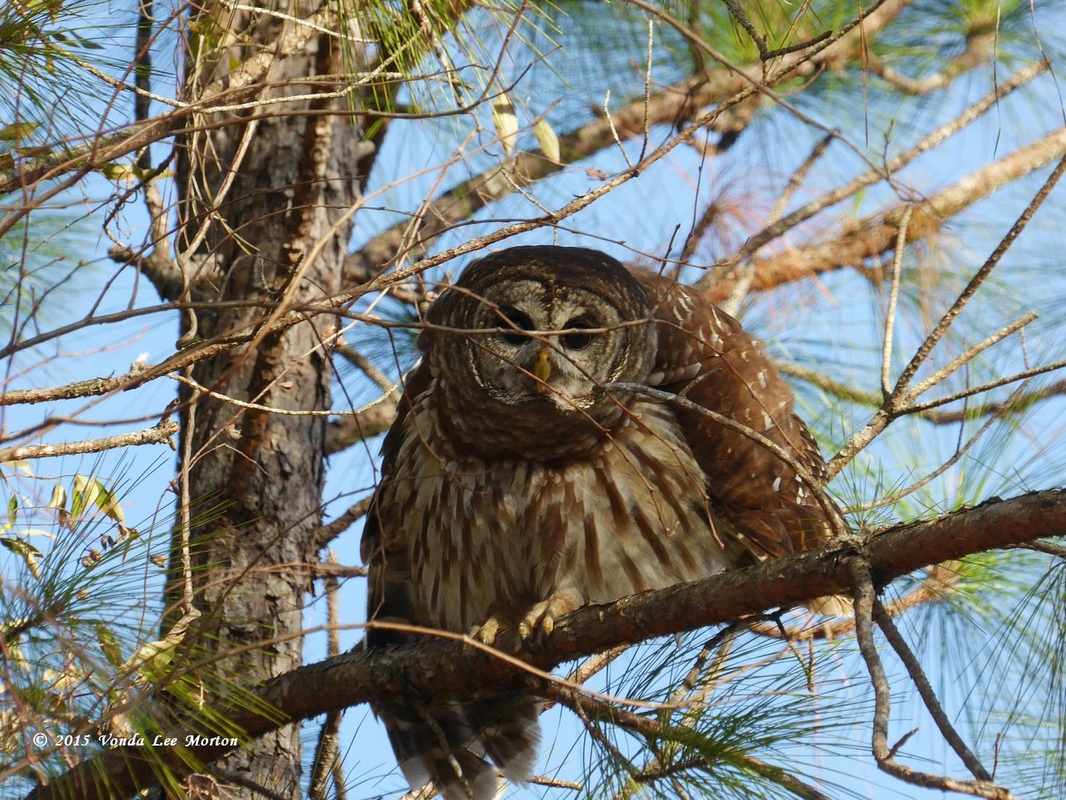
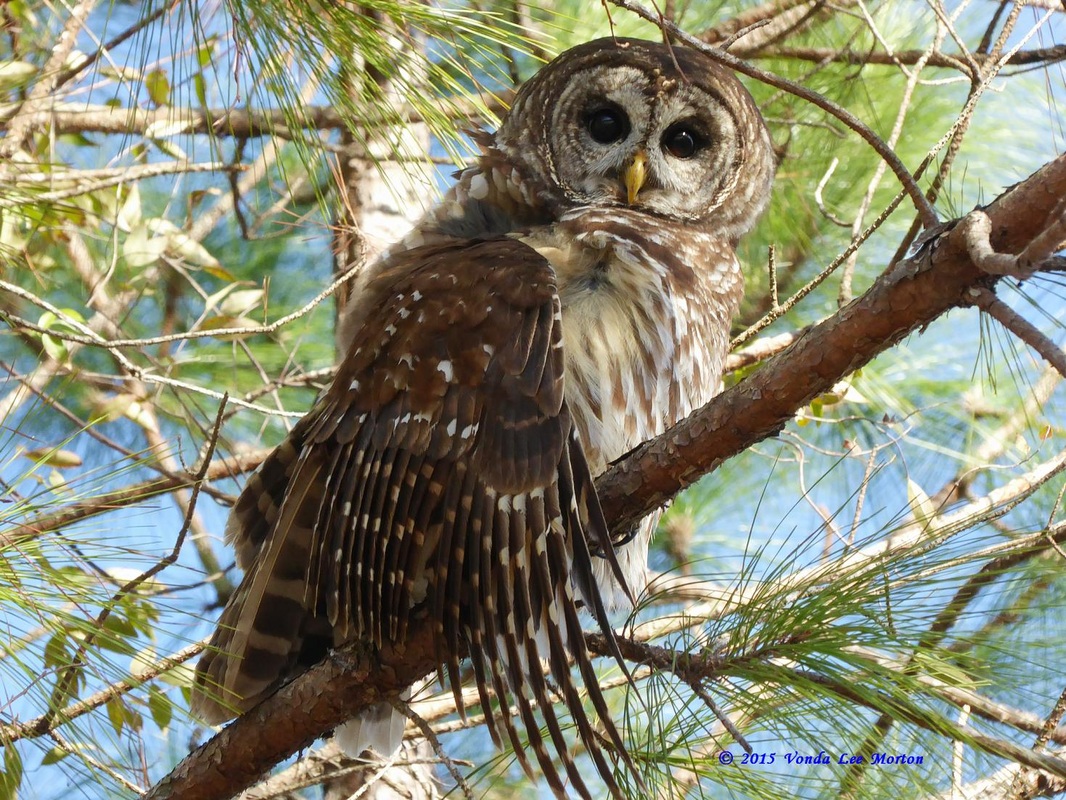
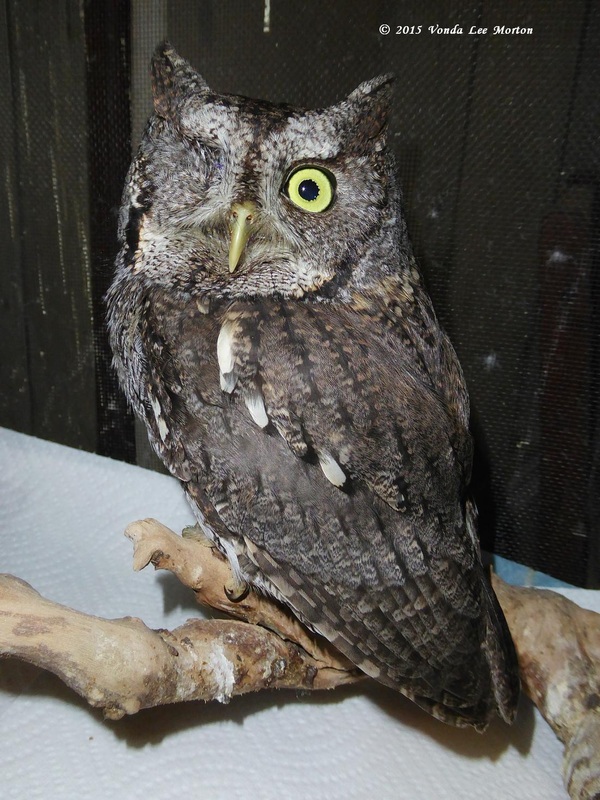
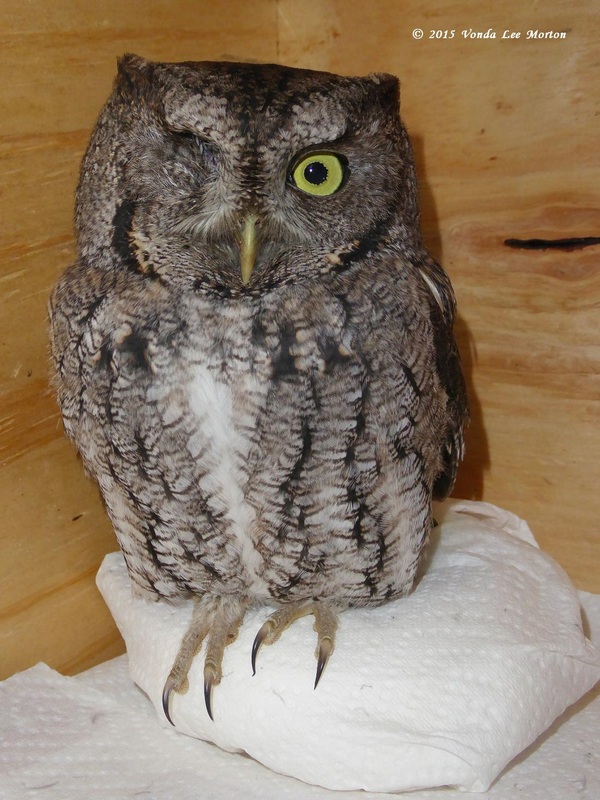
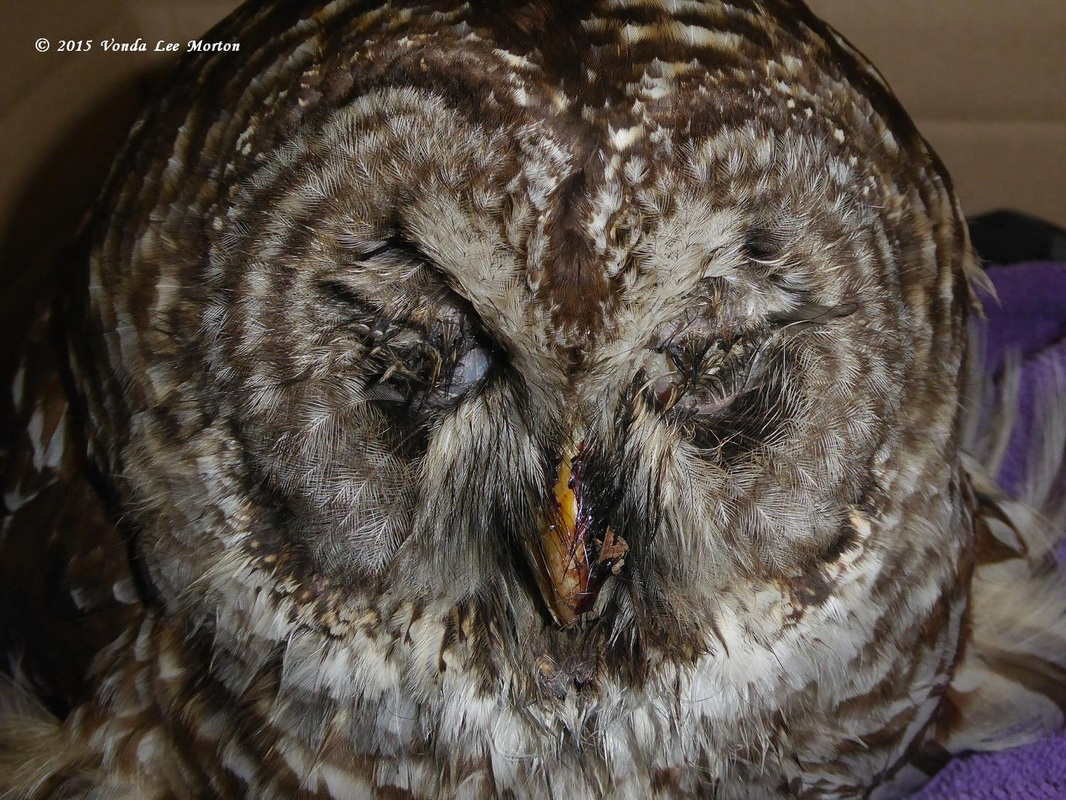
 RSS Feed
RSS Feed
